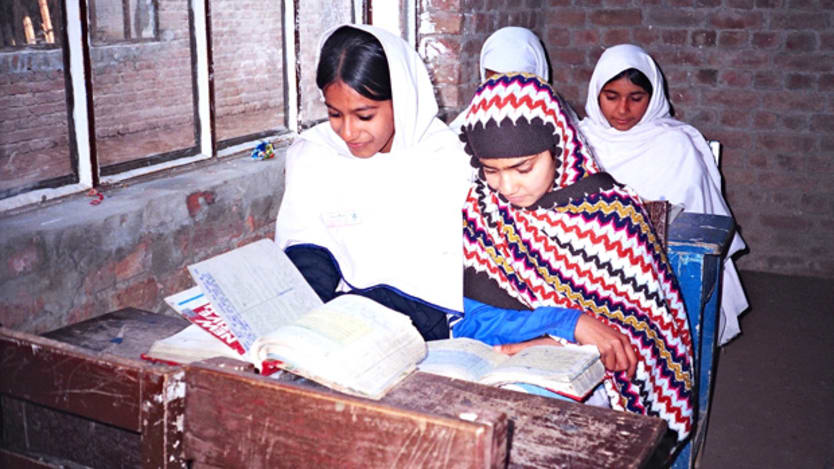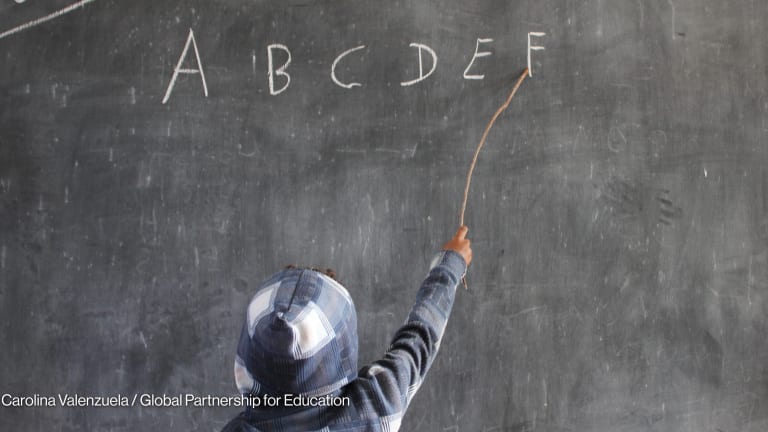
Ranging from viral celebrity videos by Alicia Keys or Susan Sarandon to declarations of support from political leaders like Michelle Obama or Graça Machel, there’s definitely a global momentum for supporting girls’ education.
This widespread attention has led to greater recognition of the importance of the issue, as well as the dividends it can reap. Globally, girls who attend school during adolescence begin having sex, marry and have children later, are less likely to get HIV or have other reproductive health problems, engage in fewer hours of domestic labor, and experience greater gender equality.
Despite all these potential gains, 17 countries — 13 of them in Africa — still have fewer than 90 girls enrolled in primary school for every 100 boys. When girls (and boys) do attend school, the quality of schooling in many settings is so poor that they emerge without basic skills. Equally concerning, preliminary evidence from the Population Council’s research in Malawi shows that after leaving school, girls are significantly more likely to lose both reading and numerical skills than boys.
More work is needed to translate schooling into lifelong success for girls in developing countries. To date, very little attention has been paid to investigating what kinds of investments have an impact on girls — what specific programs or actions are effective in keeping girls in school, helping them learn, and empowering them to transition to healthy and productive lives after leaving school.
In fact, research is so limited that, in a pivotal publication about the state of girls’ education, Our researcher Cynthia Lloyd found that girls’ education interventions fell into 12 main categories. Out of those, only two — hiring female teachers and scholarships and cash transfers — had been proven effective. The remaining ten approaches, while promising, were not supported by evidence despite widespread adoption.
See more news on girls’ education:
● For Nigerian girls, education is the key that opens doors to progress
● How to empower the girl child
● It's time to unleash girls' potential
We often hear the phrase, “We know what works; we just have to do it.” And the value of insight and intuition gained through work with girls and in their communities can’t be overstated. But interventions that are popular and appear to have a positive effect in the short-term, while often valuable for other reasons, do not always have the impact we’re expecting in the long-term. What works for one girl might not work for all—or even most—girls. And what works in one location might not work in another.
For example, some development practitioners and researchers have found that menstrual hygiene management interventions — which are often focused on providing adolescent girls with sanitary products and information about menstruation — are well received by girls and their communities. Some research indicates that these interventions alleviate the anxiety caused by menstruation in adolescent girls, and many advocates point out that girls have a right to these services. However, the impact of menstrual hygiene management programs on schooling — and success after school — has yet to be shown.
So far there is little evidence indicating that provision of sanitary products leads to better school attendance or improved school performance by girls. A recent systematic review on the topic concluded that “there was no quantitative evidence that improvements in [menstrual] management methods reduce school absenteeism.” Despite the lack of evidence, perhaps due in part to an insufficient number of rigorous studies on the topic, advocacy campaigns and interventions are based on the assumption that distribution of sanitary products will lead to improved school attendance, performance, and progression for girls.
As this global movement evolves, donors and organizations that work with and on behalf of girls should demand a higher standard of evidence to guide our efforts. Investments should be focused on programs that have been demonstrated to be effective in achieving clearly stated goals, or on evaluating promising interventions that lack sufficient evidence to date.
Girls around the world deserve no less.
Join the Devex community and access more in-depth analysis, breaking news and business advice — and a host of other services — on international development, humanitarian aid and global health.








